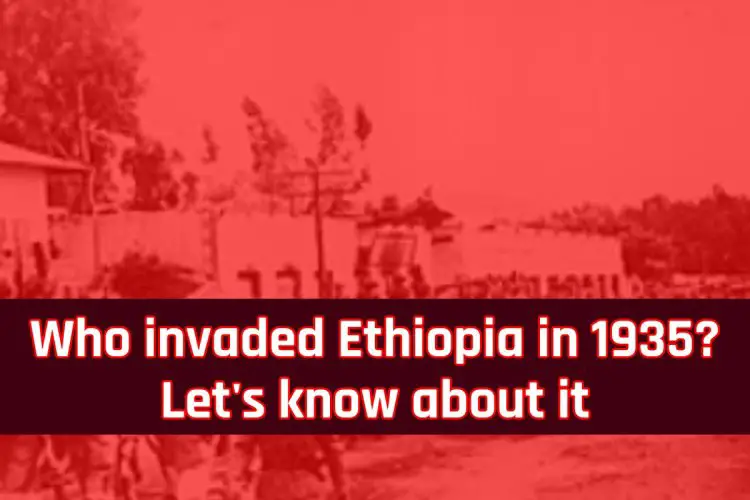Who invaded Ethiopia in 1935? Let's know about it
This is the story of the invasion of Ethiopia in 1935, an event that left an indelible mark on the country's history. Let's know about it

In the 1930s, the world was on the brink of a cataclysmic conflict. Amid rising tensions, a small African nation finds itself at the mercy of an imperial power. This is the story of the invasion of Ethiopia in 1935, an event that would leave an indelible mark on the country's history.
Offensive: Italy's imperial ambitions
Italy, the country led by Benito Mussolini, was at the center of this attack. Motivated by a desire to establish an Italian empire in Africa, Mussolini saw Ethiopia, then known as Abyssinia, as a prime target. The invasion was not simply a military operation, but a statement of Italy's imperial ambitions.
Ethiopian conflict: David vs. Goliath battle
While Italy claimed to have a modern military machine, Ethiopia's forces were inadequately equipped and outnumbered. Nevertheless, the Ethiopian people, under the leadership of Emperor Haile Selassie, displayed remarkable resilience and determination. The Ethiopian fight was not just a fight for sovereignty, but a symbol of resistance against colonialism.
League of Nations: a failed promise
In the face of this aggression, the international community turned to the League of Nations, the predecessor of the United Nations. However, the league's reaction was tepid at best. Sanctions were imposed on Italy, but they proved ineffective and the invasion continued. The League's failure to defend Ethiopia would have far-reaching consequences.
The Aftermath: A Nation Scarred
By 1936 Italy had successfully occupied Ethiopia. The results were disastrous. Ethiopians faced widespread oppression and displacement. The invasion also had geopolitical implications, as it further destabilized an already unstable region. The wounds of this attack will take decades to heal.
Heritage: Lessons from History
The invasion of Ethiopia in 1935 was a stark reminder of the dangers of unchecked imperialism. It serves as a call to action, urging us to protect the sovereignty and dignity of nations. As we reflect on this dark chapter in history, let us strive to ensure that such an injustice never happens again.











![[PDF] Financial Analysis of Fish Farming Operations](https://www.mpnewshindi.com/uploads/images/2024/02/image_380x226_65de4629a865d.jpg)





